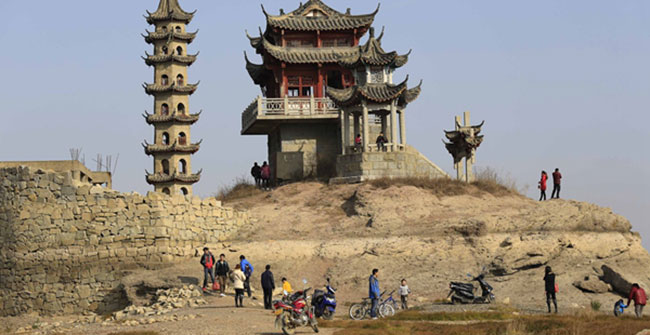Education favorite of Chinese philanthropists
By Ma Chi (chinadaily.com.cn) Updated: 2016-01-29 13:43 |
|
He Qiaonv, a Chinese businesswoman and philanthropist, tops the 2015 philanthropists' list of China. [Photo/IC] |
Higher education is the largest recipient of donations in China while philanthropists prefer to give to private foundations rather than government-backed charities, said a new report.
Nearly half of the 12.8 billion yuan ($1.95 billion) worth of donations made in 2015 went to foundations of higher education institutions. Of all the donations to higher education, more than 10 percent came from alumni.
Jack Ma, founder of e-commerce giant Alibaba, donated 100 million yuan ($15.2 million) to his alma mater Hangzhou Normal University, ranking 10th on the philanthropists' list.
The other major areas of donation included environmental protection, development of primary and secondary schools, and poverty relief.
The report published by China Philanthropy Research Institute of Beijing Normal University compiled the top 100 donators in Chinese mainland.
The top philanthropist, He Qiaonv, chairman of landscape company Orient Landscape, donated 2.9 billion yuan worth of corporate stock to a foundation set up under the name of the company. She was the first woman to occupy the top spot on the list which was first issued in 2011. Another 14 women made the list in 2015.
 |
In terms of industry, property sector took the top place with 21 individuals and families coming from the industry, but 40 percent less than the previous year. It was followed by manufacturing sector (18 people) and Internet industry (14 people).
According to Zhang Gaorong from China Philanthropy Research Institute, the donations were more evenly distributed among different industries in the latest list as traditional resource-intensive industries lost some ground.
Of all the donations, more than 80 percent went to foundations set up by universities or private enterprises while only less than 14 percent went to governments or government-backed charities.
The higher ratio of donations for private foundation was partly due to stronger management and tighter supervision of enterprises and partly due to poor information disclosure of the government charities, said Zhang.
 |
- Education favorite of Chinese philanthropists
- Beijing encounters natural gas supply shortage
- Man convicted of abducting 22 children executed
- Cow hearts used in old cosmetics - Archaeological research
- Nation faces challenge from cancer
- Unauthorized GM crops face intensified oversight
- Cold hits orange crop hard in Jiangxi
- China,US advance cooperation
- Support lacking for car ban plan in Beijing
- Top medical authority says appointment scalpers will be punished






